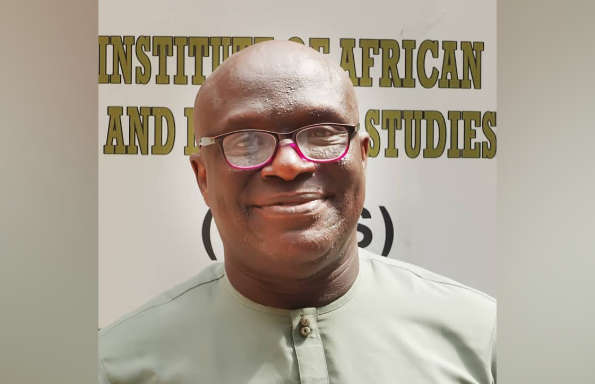A recording of the event will be available soon
Will the real African anthropologists please stand up? The idea of decolonizing anthropology presupposes the need to take a second look at the discipline's role in the present state of academic African Studies and the post-colonial socio-political situation in Africa. For very many years, anthropology has been vilified as the discipline that prepared Africa for colonization and sustained the tempo of racism and racialism in the world.
In the last twenty years, the discipline of anthropology has been engaged in theoretical battles to shake off this toga bestowed by classical anthropology, albeit on a turf that has become increasingly stifled by new ways and approaches to scholarship on the continent. The struggle for relevance in that discipline has several dimensions and obstacles. In this presentation, I argue that anthropology, given the way and manner the discipline evolved, the challenge of relevance by academic disciplines in the liberal arts, and the struggle for competing budgetary resources in Africa, anthropology requires a whole lot of transformation to survive. While the role of anthropology in the subjugation and colonization of Africa remains an albatross for the discipline, the current economic and political realities in Africa are even more problematic for the discipline as presently understood. The decolonization of anthropology may no longer be enough to save the discipline.
Biography
Muyiwa Falaiye, PhD., FNAL, is a Professor of African Philosophy/Studies at the University of Lagos, Nigeria. His research interests include African Studies, Political Philosophy, Philosophical Sagacity and Philosophy of Development. Prof. Falaiye has published extensively. Some of his publications include: Africa’s Political Stability: Ideas, Values and Questions, Ontario, Panaf Press (1999), African Spirit and Black Nationalism: A Discourse in African and African American Studies, Lagos, Foresight Press, (2003), Global Understanding in the Age of Terrorism, eds with Ayodeji Olukoju, Lagos, University of Lagos Press (2008), Sparks of Resistance, Flames of Change: Black Communities and Activism, eds with Sandra M Grayson, Foresight Press (2005), ‘Image of the Black Soul: From the Hut Near the Congo to the Banks of the Mississippi in Paul Lovejoy et.al eds Africa and its Diasporas: History, Memories and Literary Manifestations Trenton: Africa World Press, Trenton, New Jersey (2008) ‘Is African Studies Afraid of African Philosophy?’ in Toyin Falola and A. Afolayan eds: A Handbook of African Philosophy New York, Palgrave (2018) , Doctoral Training in Nigeria: Reengineering the Existing System for Sustainable Higher Education in Nigeria, with Moses Yakubu and Feyi Ademola-Adeoye, Routledge: Taylor Francis Group, London and New York (2022), and Muyiwa Falaiye with Anthony Okeregbe ‘Women Sages in Male Epistemic Spaces-an Analysis of Patriarchal Forces in Female Knowledge Production’ in Katharina Schramm and Sabelo Ndlovu eds: Knowing and Unknowing : African Studies at Crossroads E.J Brill Publishers, Leiden, Netherlands (2024).
Prof. Falaiye was Director, Confucius Institute, 2010-2013, Head of Philosophy at the University of Lagos, 2013-2015 and Dean of the Faculty of Arts at the same University, 2015-2019. He is currently the Director of Institute of African and Diaspora Studies and the University of Lagos African Cluster Center (Lagos ACC), a Center of the Africa Multiple, Cluster of Excellence in African Studies, University of Bayreuth, Germany, Prof. Falaiye is a Fellow of both the African Studies Centre, Leiden, Netherlands and the Nigerian Academy of Letters.
Back to: School of Architecture
